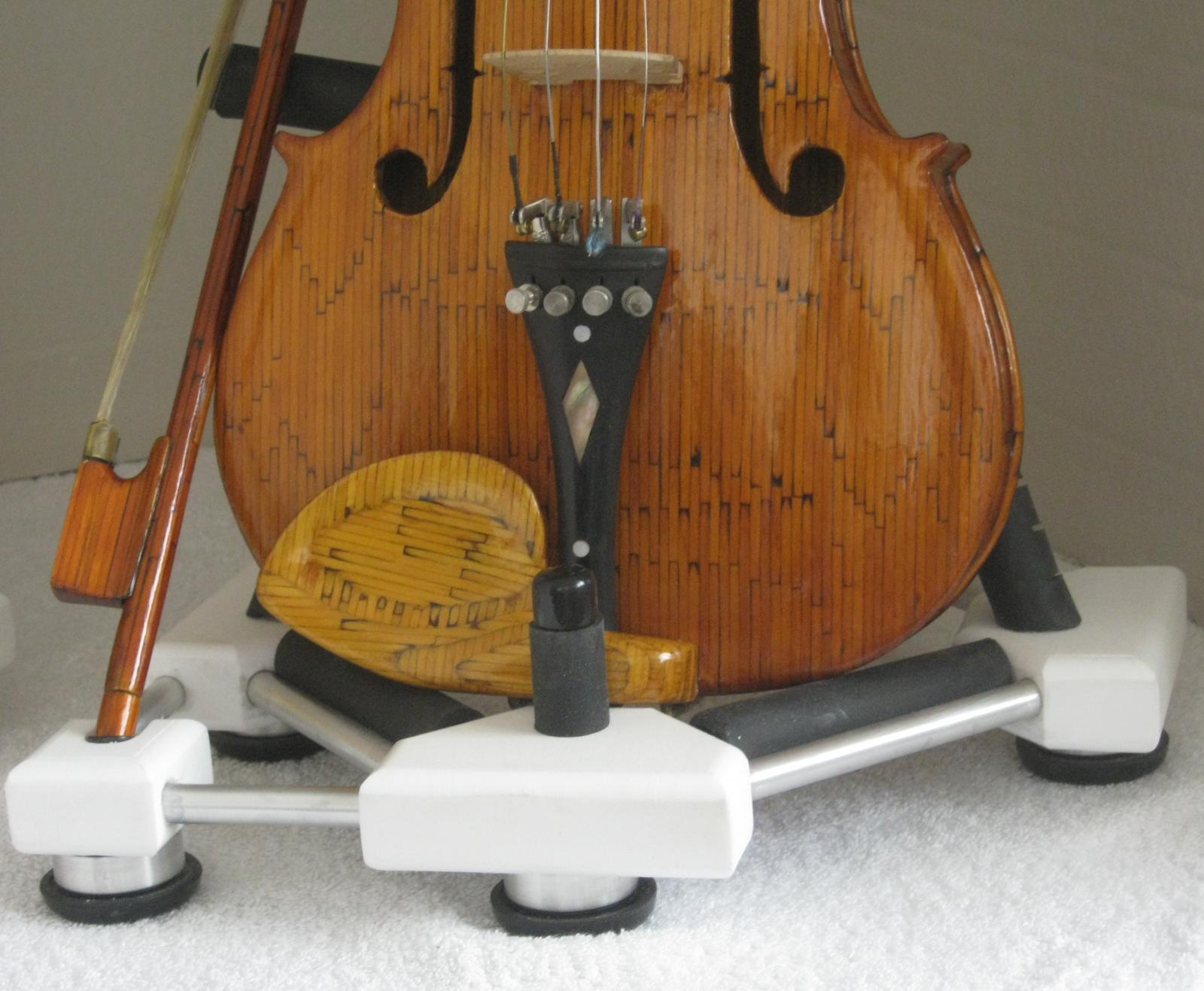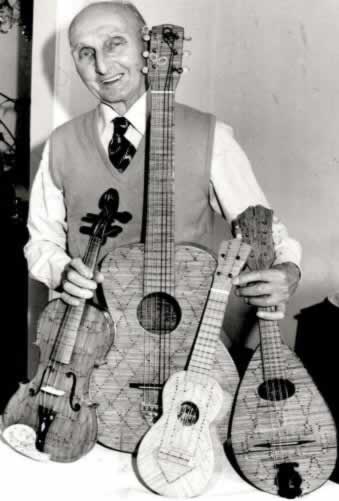 |
| Jack Hall the Matchstick Man |
 |
| Tony Hall |
Jack Hall was born in 1906 in Brighton, England. He never had any musical talent, but as a seaman in the Merchant Navy, he had a lot of time.
Jack started serving on an American tramp stearmer, the Eastwick, which was owned by the Anglo-American Company, a subsidiary of Standard Oil.
The daily routine was monotonous, so to quell the boredom Jack needed to find something to do with the time.
He began by picking up discarded matchsticks from the ships deck that were routinely tossed away by his fellow crew members. He got the notion to glue them together an make something.
Using an empty tobacco tin and an old saucepan he made a glue pot and attempted to piece together matches to create a layer of timber. His first attempt was unsuccessful. Undetered, he tried again, this time using a second layer crosswise, in effect making a two ply board of matchsticks.
A crew member jokingly suggested he make something useful, like a fiddle. Somehow one of those "ah-ha" moments went of in Mr. Hall's mind. He was on to something. He began askng all of his friends to not throw away their used matches, but to send them to him. Friends and family would mail them to him and when he arrived in port he always received letters containing used matches.
Hall had no carpentry or luthery skills.
Whenever his ship was in port he would go ashore to pawnshops to exam musical instruments and study the measurement, shape and feel of a fiddle. Onboard ship, he transferred these to pencil sketches, determined to make a fiddle out of glue and matchsticks.
His task took five hours a day over a six month period. Hall used more than 18,000 matchsticks and aproximately 3 pounds of glue. He eventually whittled matchsticks down to around 14.000 and used another 1,000 for the chin rest. Please consider, this was no easy task to do aboard a small tramp steamer, with the crowd of shipmates and the rolling of the waves.
 |
| Match Stick Fiddle and Match Stick Bow |
Perhaps the most difficult process presented to him was how to make curved surfaces.
He soaked matchsticks in water until they softened and became plyable. Once glued together Hall used flat irons, firebrcks and pans of water to aid in shaping the sticks. He had no idea that professional luthiers utilized the same process to bend wood.
Jack Hall states, " Carving was done with a knife, a file, and a cut-throat razor; finishing touches were accomplished with sandpaper, before the varnish seal was applied."
Perhaps the most striking (I made a pun..it's matches folks) feature of Mr. Hall's work is the beautiful designs derived from his placement of the sets match sticks. Each had to be cut down individually to varied lengths to fit into what seems to be a puzzle as much as a guitar.
 |
| Tony Hall with Dad's Collection |
Opening the cases reveals the extrordiary graphics, art and logos manufacturers used to sell their products during the 1930's and 1940's.
In the 1940's, the breakout of WWII interrupted Jack Hall's "Matchstickology" as he volunteered to serve aboard a deep sea rescue tug boat. After his discharge from the services in 1945, Mr. Hall quietly gave up is hobby and stored his treasures away in the attic of his home until 1951 when it was put on display at the Festival of Great Britain.
In 1976 a Radio Brighton reporter did a story on Jack Hall and visited his home to see the instruments for himself.
In 1984, Mr. Hall revived interest in his hobby by building a ukulele out of 10,000 matches.
It was not until 1991 when a group of four musicians played Jack's instruments on BBC Television, astonishing viewers and the musicians.
Jack Hall passed away at age 86. He had no idea of the sensation his collection had created. The instruments have been loaned out for various displays and even more Television shows. Notable players, such as world renown concert violinist Yehudi Menuhin, guitarist and singer Glen Campbell and guitarist Albert Lee have all played Mr. Hall's instruments.
Jack Hall was a most extaordinary and unique fellow.
http://www.flickr.com/photos/52858221@N04/page3/










Tidak ada komentar:
Posting Komentar